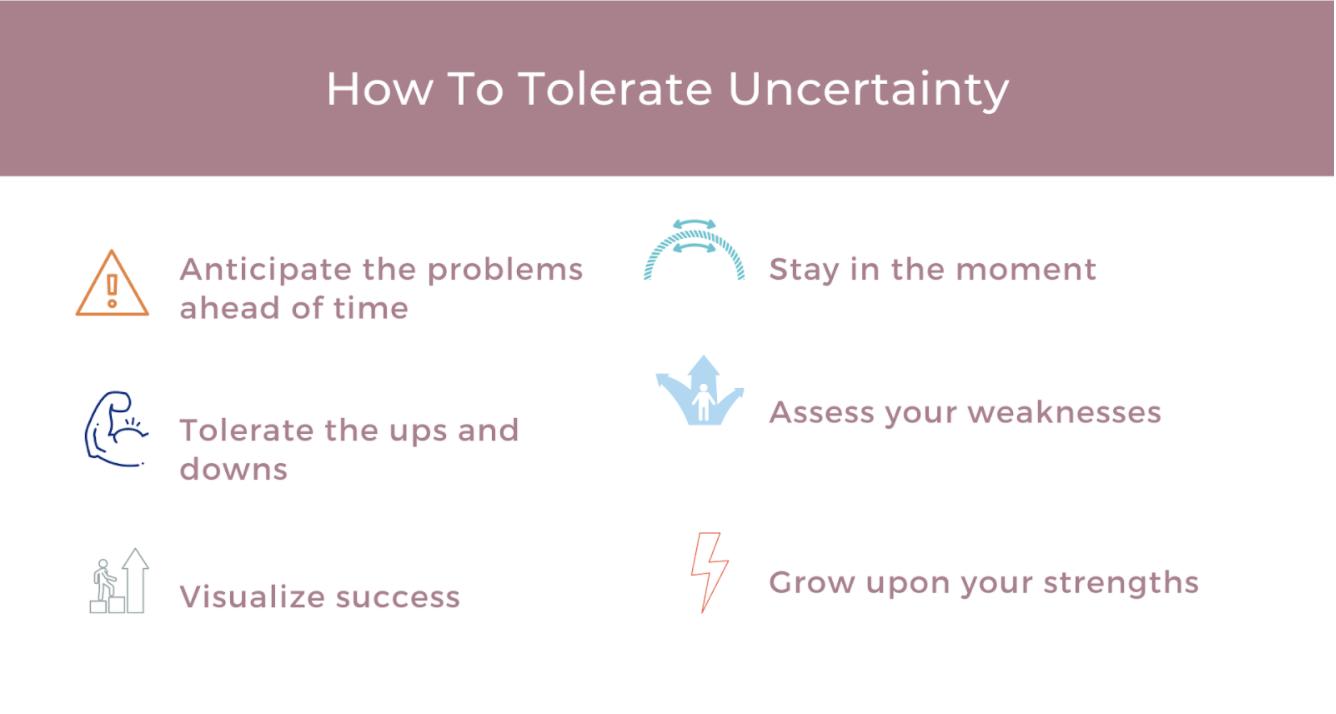How To Gain Control In Times of Uncertainty

How To Gain Control In Times of Uncertainty
By: Audrey Grunst, LCSW
Change and uncertainty can feel scary and overwhelming. But, change is a fact of life. It can be big or small, planned or unexpected – and it can carry with it both negative and positive feelings. That’s what makes it so complex. If you focus on learning how to cope ahead during times of uncertainty, you will gain control of your emotional responses and likely be able to tolerate the ebbs and flows that inevitably come with life.
Are You A Responder or A Reactor?
Have you ever considered if you respond to situations or react to them? Imagine being at work and you receive an email from your boss about a big change in process that will add a lot more work to your plate. Is your knee-jerk reaction to fire off a scathing email response, storm out of the building, bang your hands on your desk in exasperation, or run to a co-worker and immediately start complaining about how management could possibly be doing this to you?
This would be considered a reaction to the situation. It’s emotionally driven and likely leaves you feeling out of control, impulsive and overwhelmed. Your body is probably experiencing physical reactions as well – maybe your face is hot, your hands are clenched, you’re short of breath and have a pit in your stomach.
What if instead of reacting you could learn how to gain control of even the most uncertain situations, sustain your energy (even when your strength and control begin to waiver), and increase your level of optimism about the situation so that you can find purpose and opportunity? Would that be helpful?
Yes? Okay, then let’s talk about how to be a responder rather than a reactor.
Learning to Respond Responsibly
Think about a firefighter - they arrive at the scene of a burning building and have to assess the situation very quickly. They immediately go to work getting people to safety and putting out the fire. However, have you ever stopped to consider that they don’t run into the fire – they walk? More than that, they have crafted an action plan driven by non-emotional, swift decision-making. They are responding to the situation rather than reacting.
A responder response style during uncertain times is going to yield better results in your life than a reactor style. A responder is going to stay calm, controlled, thoughtful, organized and prepared. Think back to the example above about the boss’s email. Rather than reacting to that situation, you can learn skills that will allow you to put space between yourself and the situation causing you stress and then create an action plan to respond responsibly – allowing you to experience more confidence, success and joy in life.
6 Strategies For Coping With Uncertainty
-
Anticipate the problems ahead: acknowledging and understanding that problems are always going to arise allows you the ability to shift your mindset and cope ahead. This is one of the best ways to reduce anxiety and worry because you're preparing yourself and making sure that you have the necessary tools or skills to face those moments.
-
Learn to tolerate the ups and downs: oftentimes we like the “ups” because we feel like things are going really well. However, we also get anxious that those ‘up’ times are going to leave us and that we’ll dip down. During ‘down’ times, we become less confident or unsure of what's ahead. By creating a comfort level in knowing that the ups and downs are a natural part of life, we can learn to tolerate and hold space for things to ebb and flow without as much disappointment or frustration.
-
Visualize your success: visualization is an incredible skill for coping ahead during uncertain times because if you can see success in your future, you're more likely to act and feel things from that place. This will increase your confidence and optimism, even during times of change.
-
Stay in the moment: practice being more mindful and aware of your surroundings. Use your environment to stay grounded so that you don't stay stuck in the past or worry about the future.
-
Assessing your weaknesses: recognizing that you will make mistakes leads to an increased sense of vulnerability, and also gives you more opportunities for growth and change. Some days your emotional and mental capacity and capability is like having a brand new car – everything is running smoothly and on track. Other days, our cars make funny sounds or break down, especially if they haven’t been properly maintained. In order to fix your car, you take it to the auto shop and a technician diagnoses the issues and recommends a tune-up. This is a similar analogy for how you can assess your weaknesses. By knowing your areas of improvement, you're more likely to address them and fix them before the broken parts create a bigger problem for yourself.
-
Grow upon your strengths: what you focus on grows. By understanding your strengths and being sure they are your main focus, you can learn to balance and lean into them, rather than constantly worrying about your weaknesses.

Learning To Control What You Can
Let’s go back one more time to the example of your boss sending the email. In addition to the myriad of physical and emotional responses you could have to that email, where you might land and get stuck is in the wish that the change wasn’t happening in the first place. However, it’s important to remember that we can’t control what other people do, say, think or feel. It’s unhelpful and unhealthy to get stuck there.
What we can control is our own response to the situation – and that allows for less suffering and pain and leads to better outcomes in the long run.
Out With The Old, In With The New
"The secret of change is to focus all of your energy not on fighting the old, but in building the new." -Socrates
By implementing these six skills into your daily life, you can learn to not only better tolerate times of uncertainty but actually have a growth mindset that allows you to face those challenging moments head on without hiding, avoiding or giving up. Next time you’re faced with a situation that causes you anxiety, recall your desire to be a responder rather than a reactor. Give yourself the space to step back and create an action plan that builds your resilience to change.
Download this free daily journal to start gaining control in uncertainty today!

